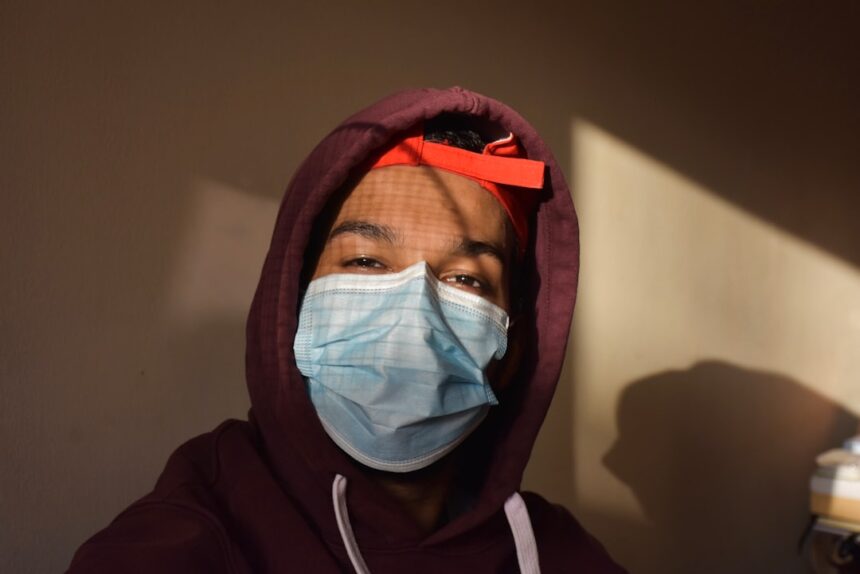Faking cancer is a phenomenon that has garnered increasing attention in recent years, often leaving a trail of devastation in its wake. As I delve into this complex issue, I find it essential to understand the motivations behind such deceitful actions. Individuals who fake cancer may do so for various reasons, including the desire for sympathy, financial gain, or even a misguided attempt to feel special.
The act itself is not only a betrayal of trust but also a profound violation of the emotional and social fabric that binds communities together. It raises questions about morality, ethics, and the lengths to which some individuals will go to seek validation or support. The implications of faking cancer extend far beyond the individual perpetrator.
It affects families, friends, and even strangers who may have offered their support and compassion. As I explore this topic further, I aim to shed light on the emotional, legal, and financial ramifications of such deceit, as well as the broader impact on society and the medical community. Understanding the full scope of faking cancer is crucial in addressing the issue and preventing future occurrences.
Key Takeaways
- Faking cancer is a deceptive and harmful act that involves pretending to have cancer when one does not.
- Victims of faked cancer experience emotional distress, betrayal, and a loss of trust in others.
- Legal consequences of faking cancer can include criminal charges, fines, and civil lawsuits for fraud and emotional distress.
- Faking cancer can lead to financial ramifications such as fraudulent fundraising, wasted resources, and potential legal fees.
- Faking cancer damages trust in the medical community, leading to skepticism and suspicion towards genuine patients and healthcare providers.
Emotional Impact on Victims of Faked Cancer
The emotional toll on those who discover that someone they cared for has faked cancer can be profound. I have witnessed firsthand how betrayal can shatter trust and leave deep emotional scars. Friends and family members often feel a mix of anger, confusion, and sadness upon learning the truth.
They may grapple with feelings of guilt for having offered support or sympathy to someone who was not genuinely suffering. This emotional turmoil can lead to strained relationships and a pervasive sense of mistrust that lingers long after the initial shock has worn off. Moreover, the emotional impact extends beyond immediate circles.
Communities that rally around a person believed to be battling cancer may experience collective grief and outrage when the truth is revealed. I have seen how this can lead to a breakdown in community bonds, as individuals question their ability to discern authenticity in others. The ripple effects of such deceit can create an atmosphere of skepticism, where genuine cases of illness may be met with suspicion, further complicating the already challenging landscape of emotional support for those in need.
Legal Consequences of Faking Cancer

The legal ramifications of faking cancer can be severe, depending on the jurisdiction and the extent of the deception. In many cases, individuals who engage in this behavior may face charges related to fraud or theft, particularly if they have solicited donations or financial assistance under false pretenses. I find it alarming how some individuals exploit the goodwill of others for personal gain, often leading to criminal charges that can result in significant penalties, including fines and imprisonment.
In addition to criminal charges, there are civil consequences that can arise from faking cancer. Victims of such deceit may pursue legal action against the perpetrator for emotional distress or financial losses incurred as a result of their actions. I have observed how these legal battles can become protracted and emotionally draining for all parties involved, further complicating an already sensitive situation.
The legal system serves as a reminder that faking cancer is not just a moral failing but can also lead to serious repercussions that affect both the perpetrator and their victims.
Financial Ramifications of Faking Cancer
| Financial Ramifications of Faking Cancer |
|---|
| Cost of unnecessary medical treatments |
| Legal fees and potential fines |
| Loss of employment and income |
| Damage to personal and professional reputation |
| Potential civil lawsuits for fraud |
The financial implications of faking cancer can be staggering, both for the perpetrator and those who unwittingly supported them. I have seen cases where individuals have raised substantial amounts of money through crowdfunding platforms or community fundraisers, only to later reveal that their illness was fabricated. This not only results in financial loss for donors but also creates a chilling effect on future fundraising efforts for legitimate causes.
People may become hesitant to contribute to cancer-related charities or support individuals in need due to fears of being deceived. For the perpetrator, the financial consequences can also be dire. If caught, they may be required to repay any funds raised under false pretenses, leading to potential bankruptcy or long-term financial instability.
I find it disheartening that some individuals would risk their financial future for temporary gains, ultimately harming themselves and others in the process. The cycle of deceit can create a toxic environment where trust is eroded, making it increasingly difficult for genuine cases to receive the support they desperately need.
Damage to Trust in the Medical Community
Faking cancer has far-reaching implications for trust in the medical community. As someone who values the integrity of healthcare professionals, I am deeply concerned about how such deceit can undermine public confidence in medical diagnoses and treatments. When individuals fake cancer, they not only harm those around them but also contribute to a growing skepticism regarding the authenticity of medical claims.
This erosion of trust can lead to increased scrutiny of patients seeking treatment and support, creating barriers for those who genuinely need help. Moreover, healthcare providers may find themselves in difficult positions when dealing with patients who have faked illnesses. I have seen how this can lead to strained doctor-patient relationships and increased workloads as medical professionals must navigate the complexities of discerning genuine cases from fraudulent ones.
The ripple effect extends beyond individual practitioners; it can impact entire healthcare systems as resources are diverted to address issues arising from deceit rather than focusing on patient care.
Impact on Genuine Cancer Patients

The consequences of faking cancer extend significantly to genuine cancer patients who rely on community support and understanding during their battles with illness. I have witnessed how the actions of a few can cast a shadow over many, leading to skepticism and doubt about legitimate cases. When someone fakes cancer, it can create an environment where genuine patients feel marginalized or overlooked as people become more cautious about offering assistance or support.
Additionally, the emotional toll on real cancer patients can be profound. I have seen individuals grappling with their own fears and uncertainties about their health feel further isolated when they learn about someone who has exploited their situation for personal gain. This betrayal can lead to feelings of anger and frustration among those who are genuinely suffering, as they navigate their own challenges while grappling with the fallout from someone else’s deceitful actions.
Psychological Effects on the Perpetrator
The psychological motivations behind faking cancer are complex and multifaceted. I often wonder what drives individuals to engage in such deceitful behavior. For some, it may stem from deep-seated insecurities or a desire for attention and validation that they feel they cannot achieve through honest means.
The psychological effects on perpetrators can be significant; they may experience guilt, shame, or anxiety as they navigate their deception while trying to maintain a façade. Moreover, I have observed that many individuals who fake cancer may struggle with underlying mental health issues that contribute to their actions. The need for sympathy or attention can become an unhealthy coping mechanism for unresolved emotional pain or trauma.
As I reflect on this aspect, I realize that addressing these underlying psychological factors is crucial in preventing future occurrences of faking cancer and supporting those who may be struggling with similar issues.
Public Outrage and Stigmatization
When cases of faked cancer come to light, public outrage often follows swiftly. I have seen how social media can amplify this outrage, leading to widespread condemnation of the perpetrator and calls for accountability. The public’s reaction is often fueled by a sense of betrayal; people feel deceived not only by the individual but also by the larger narrative surrounding cancer and illness.
This outrage can manifest in various ways, from online shaming to public protests against those who exploit vulnerable communities. However, this public outrage can also lead to stigmatization of individuals with genuine illnesses. I find it troubling that innocent patients may face increased scrutiny or skepticism due to the actions of a few deceitful individuals.
The stigma surrounding faked cancer can create an environment where genuine patients feel compelled to prove their authenticity or justify their need for support, further complicating their already challenging journeys.
Ethical Considerations of Faking Cancer
The ethical implications of faking cancer are profound and multifaceted. As I reflect on this issue, I am struck by the moral dilemmas it presents not only for the perpetrator but also for society as a whole. Faking cancer raises questions about empathy, compassion, and our responsibilities toward one another as human beings.
It challenges us to consider what drives individuals to deceive others and how we can foster an environment that encourages honesty and vulnerability rather than manipulation. Moreover, I believe it is essential to examine our societal values surrounding illness and suffering. The desire for sympathy or support should not come at the expense of others’ trust or well-being.
As I contemplate these ethical considerations, I am reminded of the importance of fostering open dialogues about mental health and emotional struggles so that individuals feel empowered to seek help without resorting to deceitful behaviors.
Media Attention and Sensationalism
The media plays a significant role in shaping public perceptions of faked cancer cases. I have noticed how sensationalized coverage can amplify outrage while often neglecting the complexities behind such actions. News stories tend to focus on the shock value of deception rather than exploring the underlying psychological factors that contribute to these behaviors.
This sensationalism can perpetuate stereotypes about illness and suffering while failing to address the broader societal issues at play. Furthermore, media attention can inadvertently glamorize or romanticize the act of faking illness as a means of gaining attention or sympathy. I find it concerning that such portrayals may encourage others to engage in similar behaviors rather than fostering understanding and compassion for those genuinely struggling with health issues.
As consumers of media content, we must critically evaluate how these narratives shape our perceptions and responses to both faked cancer cases and genuine illnesses.
Prevention and Detection of Faked Cancer
Preventing instances of faked cancer requires a multifaceted approach that involves education, awareness, and community engagement. I believe it is crucial to foster open conversations about mental health and emotional struggles so that individuals feel supported in seeking help rather than resorting to deceitful behaviors. By creating an environment where vulnerability is embraced rather than stigmatized, we can reduce the likelihood of individuals feeling compelled to fake illness for attention or sympathy.
Detection is equally important in addressing this issue effectively. Communities should be encouraged to approach fundraising efforts with transparency and accountability while remaining vigilant against potential fraud. As someone who values integrity within communities, I believe we must work together to establish systems that promote honesty while still providing support for those genuinely in need.
By fostering trust and open communication within our communities, we can create an environment where both genuine patients and those struggling with mental health issues feel safe seeking help without resorting to deception. In conclusion, faking cancer is a complex issue with far-reaching implications that extend beyond individual actions. As I reflect on its emotional impact on victims, legal consequences for perpetrators, financial ramifications for communities, and damage done to trust within the medical field, I am reminded of our shared responsibility as members of society to foster empathy and understanding while addressing underlying issues that contribute to such behaviors.
Through education, awareness, and open dialogue about mental health struggles, we can work towards preventing future occurrences while supporting those genuinely in need.
Faking a cancer diagnosis can have severe consequences, not only for the individual involved but also for the broader community. It undermines the trust in genuine patients who are battling the disease and can lead to legal repercussions for fraud. An article on this topic discusses the ethical and social implications of such deceitful actions, highlighting real-life cases and their outcomes. For more insights into the consequences of faking cancer, you can read the related article on this page.
WATCH NOW! Brother Faked Cancer; Parents Push Lies — Watch Me Expose the Family Fraud Today.
FAQs
What are the consequences of faking cancer?
The consequences of faking cancer can include legal repercussions, damage to personal relationships, and harm to the reputation of the individual involved.
What legal repercussions can someone face for faking cancer?
Individuals who fake cancer may face legal consequences such as fraud charges, civil lawsuits, and potential imprisonment.
How can faking cancer damage personal relationships?
Faking cancer can damage personal relationships by eroding trust and causing emotional distress to friends, family, and the community who may have offered support and sympathy.
What impact can faking cancer have on the reputation of the individual involved?
Faking cancer can severely damage the reputation of the individual involved, leading to loss of credibility and trust within their personal and professional circles.




